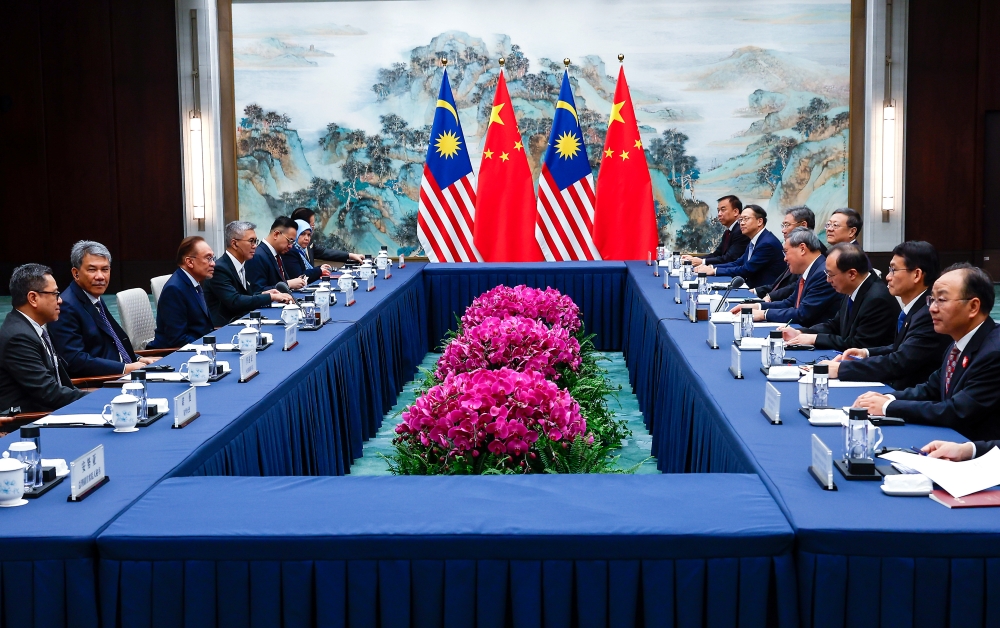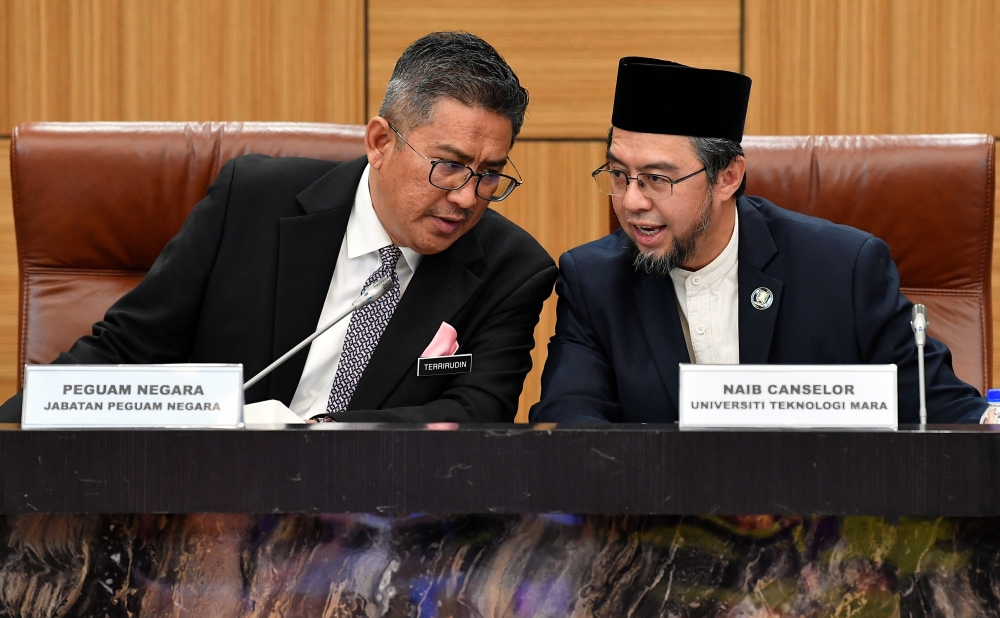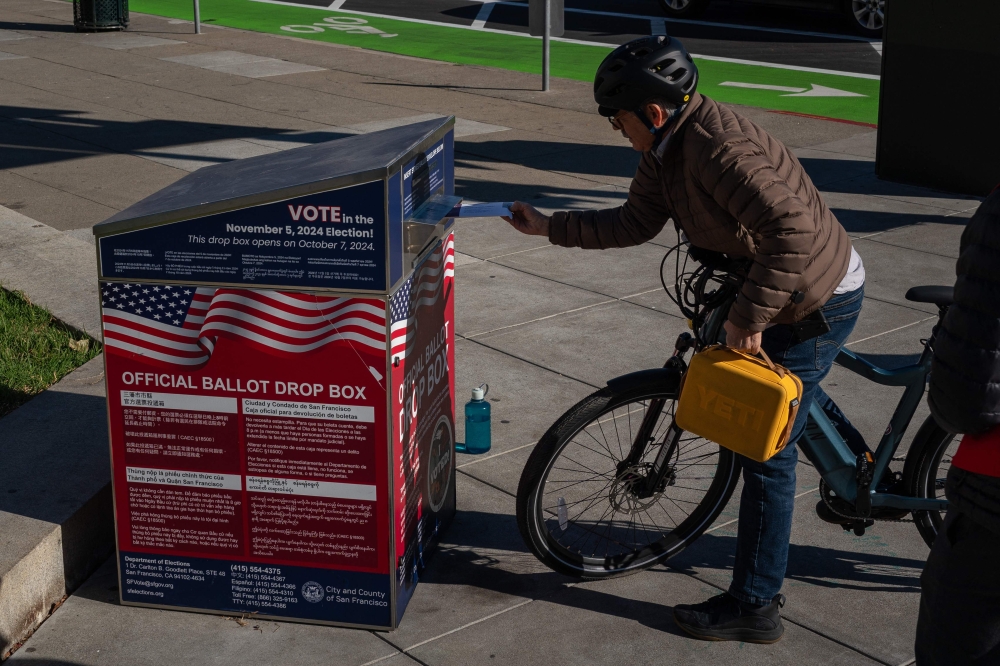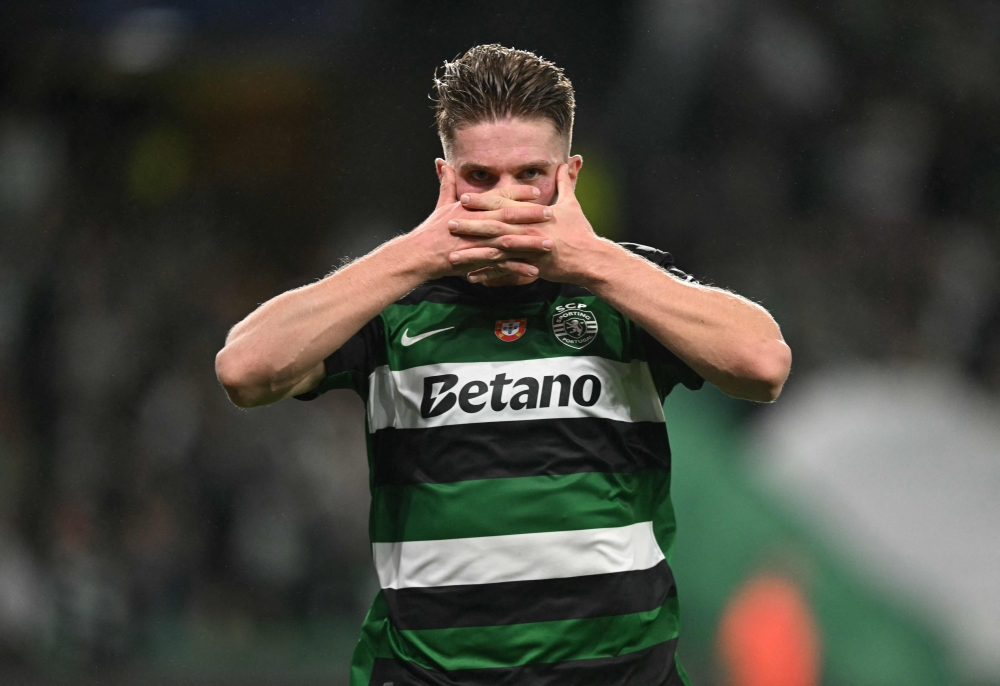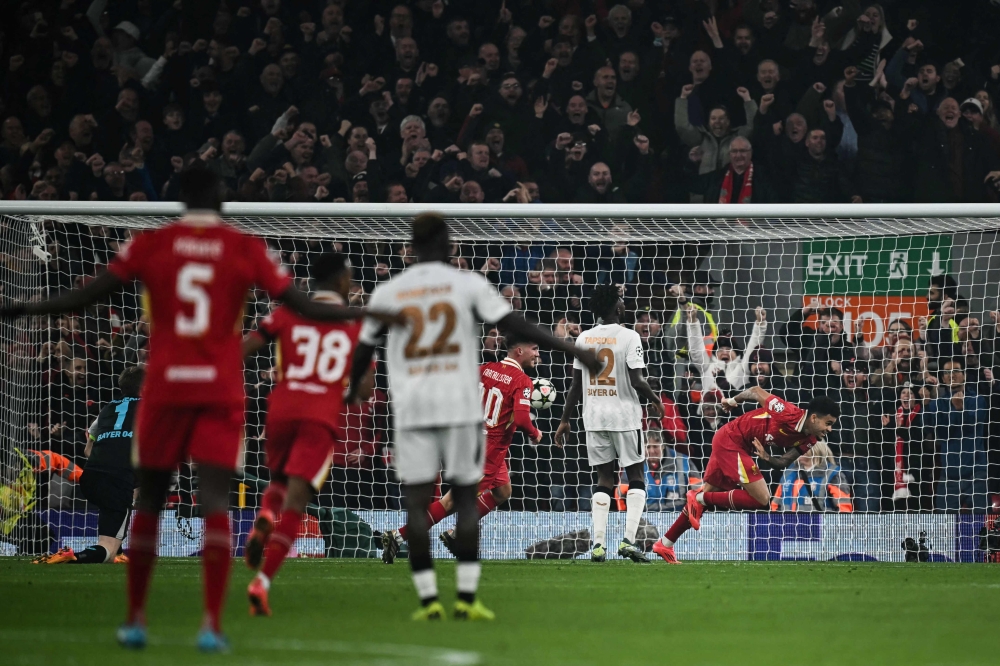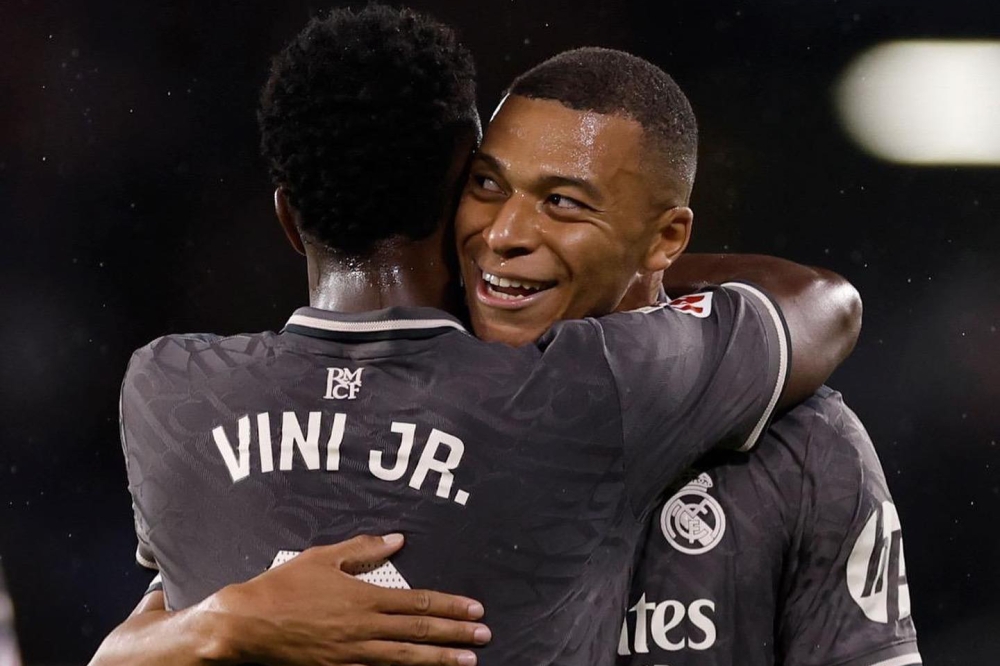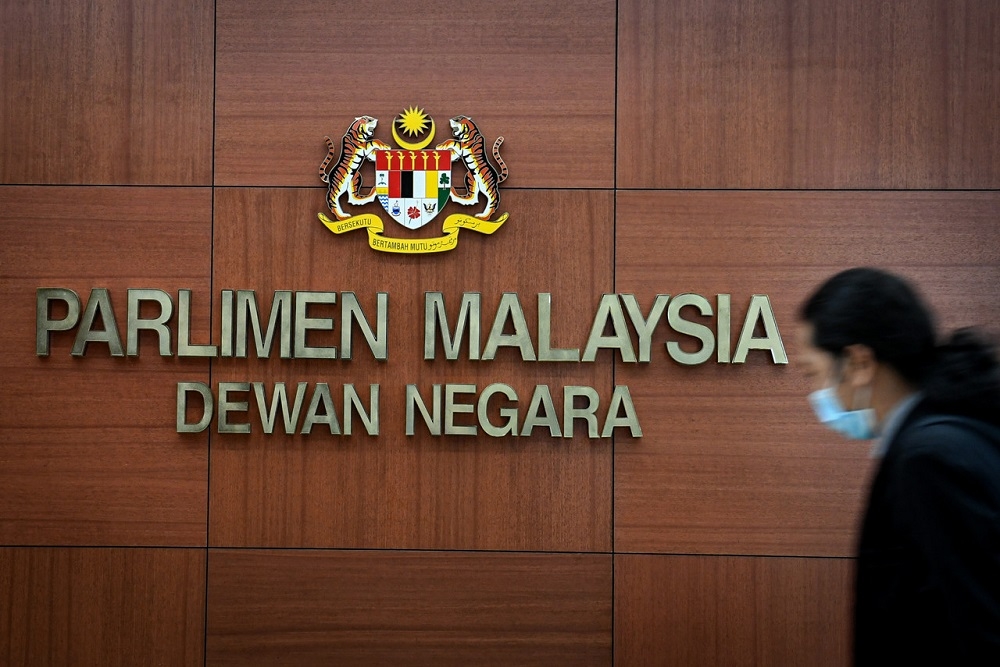LONDON, May 20 — Manchester City won a record fourth straight Premier League crown on Sunday, finishing two points ahead of Arsenal.
Following is a summary of the campaigns of the 20 top-flight clubs, listed in order of their final positions:
1 Manchester City
City were pushed hard by Arsenal but once again proved masters in closing a title race to become the first English top-flight club to win four successive league championships.
Liverpool cracked under City’s relentless pressure and while Arsenal took it to the wire, a run of 19 wins and four draws since their last defeat saw Pep Guardiola’s side prevail.
Even more impressively they had to make do without midfielder Kevin de Bruyne for several months while striker Erling Haaland also had injuries, but such is the depth of City’s squad that they simply continued churning out wins.
It is hard to pick out individuals from a supreme squad although this felt like the season that the league’s player of the year Phil Foden stepped completely out of De Bruyne’s shadow, scoring 19 league goals.
Already the question is who can stop City making it five in a row next season.
2 Arsenal
Arsenal proved they have come a long way since last season as they pushed Manchester City to the final day of the title-race, finishing runners-up with 89 points — one fewer than the total achieved by The Invincibles in 2003-04.
Ultimately it was not enough to dislodge City from their perch, but Mikel Arteta’s Arsenal proved that they are now a force to be reckoned with.
Declan Rice fully justified his £100 million (US$126.82 million) price tag as he commanded Arsenal’s midfield, while Bukayo Saka, with 16 league goals, and skipper Martin Odegaard had tremendous seasons.
Arteta told fans on Sunday not to be satisfied and that’s the message he will spend the close season preaching to his players.
3 Liverpool
Outgoing manager Juergen Klopp did not get the farewell he hoped for as the unlikely dream of a quadruple evaporated during a dreadful run of form beginning with a dramatic FA Cup defeat at arch-rivals Manchester United in mid-March.
Third place and the League Cup is all Liverpool have to show for a season that once again faded at the business end, just as it did two seasons ago when they lost the title by a point and the Champions League final by one goal.
But, after a wholesale overhaul of an ageing midfield, the Reds seem ahead of schedule towards what Klopp has described as “Liverpool 2.0”, in particular with breakout seasons for academy prospects including Northern Ireland full-back Conor Bradley.
The project will continue under departing Feyenoord boss Arne Slot, who inherits a high-class team but one that needs a few tweaks to match the league’s latest top two next term.
4 Aston Villa
Aston Villa’s dream season under Spanish manager Unai Emery ended with fourth place and a Champions League spot, a first qualification for Europe’s elite club competition since 1982-83 when they entered the European Cup as holders.
Villa, 150 years old in 2024, were 14th and sinking fast when Emery replaced Steven Gerrard in October 2022 and he has masterminded a remarkable turnaround in fortunes with some smart additions to the squad and a more attacking mindset.
Boosted by the goals of Ollie Watkins and an eight-game winning run at home from the start of the campaign that was surprisingly ended by Sheffield United (1-1) in December, the early momentum faltered towards the end of the season but provided the platform for their top four finish.
A disappointment will be their surprise exit from the Europa Conference League semi-finals at the hands of Greek side Olympiakos Piraeus, which included a 4-2 home defeat in a competition Emery would have been eyeing for success.
5 Tottenham Hotspur
There is a sense of disappointment about Tottenham’s first season under Ange Postecoglou as a wretched run of form in the closing weeks put paid to their top-four hopes.
But had fans been offered fifth place and a return to the club’s mantra of ‘daring football’ ahead of the campaign, especially having seen England striker Harry Kane depart to Bayern Munich, they surely would have taken it.
Postecoglou’s high-intensity, risk-taking style helped Spurs enjoy their best start after 10 games of a Premier League season although cracks soon appeared as it proved too much for some of the current squad.
He will not change his philosophy though and the club would be foolish not to match the Australian’s ambition with high-quality signings in the close season, especially with a return to continental football in the Europa League to cope with.
6 Chelsea
Qualification for Europe next season looked like a dream for inconsistent Chelsea during much of the season, but a late run of form — powered by top scorer Cole Palmer — earned Mauricio Pochettino’s side a Europa Conference League spot.
In early March, with the club in the lower half of the table and stinging from a League Cup final defeat by Liverpool, Pochettino had to endure abusive chanting from some Chelsea fans fed up with so little return on a £1 billion spending spree since a US private equity-led takeover in 2022.
Then Chelsea put together their best form since the Roman Abramovich era, losing only once in their last 15 games and winning their last five as an injury crisis abated.
While speculation about Pochettino’s future at the club has not lifted entirely, his next challenge may be to cope with any sales of players by the club to meet financial rules, which would probably focus on “pure-profit” academy talent such as midfielder Conor Gallagher or defender Trevoh Chalobah.
7 Newcastle United
Newcastle manager Eddie Howe must be secretly pleased that drama elsewhere in the Premier League has taken the focus off his Saudi Arabian-funded club, which has quietly but undeniably underperformed expectations this season.
A fourth-place finish last term and return to the Champions League looked to be teeing the Tynesiders up for a spell at football’s top table, but a slew of injuries and controversies have seen them fail to push on.
The long ban handed out to Italy midfielder Sandro Tonali for gambling-related offences robbed the team of a promising playmaker, and injuries often prevented Howe from fielding his best side, but even when he could, they were no match for the top clubs - or, indeed, some of the bottom ones.
Injuries aside, a squad of Newcastle’s depth — not to mention the deep pockets of their owners - demands a top-four finish and, after falling short this year, Howe will have some thorny questions to answer.
8 Manchester United
A depressing season littered with comprehensive defeats by better organised and more motivated teams operating on far smaller budgets has left new owner Jim Ratcliffe with major headaches.
Manager Erik ten Hag described United as one of the most entertaining sides in the league and he was right, but only because they were so easy to play against, lacked any coherent game plan and were often guilty of shocking game management.
A highly unlikely FA Cup final victory over Manchester City would provide a bit of cheer and Ratcliffe has started the much-needed restructuring of the club’s senior management team.
Dutchman Ten Hag’s time is surely up and a ruthless overhaul of the squad is needed before United can even think about returning to the top table of English football.
9 West Ham United
A top-half finish and another strong run in Europe failed to placate a sizeable majority of West Ham fans who needed little invitation to criticise manager David Moyes.
They argued that Moyes was not the man to take the club to the next level but the Scot will leave the club at the end of the season with plenty of credit in the bank.
While it was true West Ham missed Declan Rice and suffered some heavy beatings, there were still notable scalps including wins at Arsenal and Tottenham Hotspur and they pushed Bayer Leverkusen hard in the Europa League quarter-finals.
A new approach can be expected under Julen Lopetegui next season but Moyes has handed the club over in good shape.
10 Crystal Palace
Roy Hodgson guided Palace to safety last season but results this campaign under the former Liverpool and England boss did not meet expectations and he stepped down in February with the South London club 16th in the table.
Oliver Glasner was appointed as his replacement and results quickly looked up, with a win and two draws in his first four matches lifting them out of the relegation dogfight.
In the last few weeks of the season, the Austrian has further revitalised a young Palace side, claiming big wins over Liverpool and Manchester United and setting them up for a bright future — if they can keep hold of talents like Michael Olise and Eberechi Eze.
11 Brighton & Hove Albion
Brighton completed the best season in their 123-year history in the 2022-23 campaign when they finished sixth and won rave reviews for their playing style and the tactical acumen of manager Roberto De Zerbi.
But they could not build on that success and, if anything, the 2023-24 season was one of regression where, after a strong start in which they won five of their first six games, they had to settle for mid-table mediocrity and a last-16 exit in the Europa League at the hands of AS Roma.
The loss of Moises Caicedo and Alexis Mac Allister ripped the heart out of their midfield and they failed to dominate possession like before, winning three Premier League matches between September and February, a run of 18 games.
They limped across the finish line and with no European football next season, perhaps a reason why manager Roberto de Zerbi has ended his stay, they could be left to fight once more to keep hold of the best of their young talent.
12 Bournemouth
Andoni Iraola had an awful start to life as a Premier League manager when Bournemouth went the first nine games without a win despite the club spending more than £100 million (US$126.8 million) on new players in the close season.
But Bournemouth believed the Spaniard could turn things around as they adopted a high-pressing style that is not easy for players to grasp quickly and once the team learned to press as a unit, they registered some impressive results.
Despite a dip in form earlier this year, they slowly clawed their way up the table.
Striker Dominic Solanke recorded career-best top-flight figures with 19 goals and Iraola ended his debut campaign in England with a Manager of the Season nomination for their remarkable turnaround.
13 Fulham
Fulham may not have reached the heights of last season’s top-half Premier League finish, but survival was the objective as they sought to rid themselves of the ‘yo-yo club’ tag.
Pre-season predictions had been pessimistic, especially when they looked set to lose manager Marco Silva, before he signed a new contract.
They did lose their leading scorer from the previous two seasons, Aleksandar Mitrovic, but Rodrigo Muniz returned from his loan spell at Middlesbrough and while he struggled early on with injuries the Brazilian netted nine goals.
Unlike last season, Fulham managed wins over top clubs this campaign, with victories against Arsenal, Tottenham Hotspur and Manchester United, and if Silva remains at the club their future in the Premier League looks promising.
14 Wolverhampton Wanderers
Despite some gloomy predictions for Wolves, they stayed well out of the relegation zone throughout the season, produced some memorable performances, and would surely have finished better than 14th had star man Pedro Neto stayed fit.
Fans would say the Video Assistant Refereee (VAR) also took the shine off their season after more than their fair share of dubious decisions that began on the opening day when wrongly denied a penalty away at Manchester United.
However, Gary O’Neil’s side managed some eye-catching results, including victory over league champions Manchester City at home and doubles over both Tottenham and Chelsea.
Wolves’ South Korean striker Hwang Hee-chan had a superb season with 12 league goals. And brilliant Portuguese winger Neto gave them flair and thrust every time he played, but his appearances were limited by injury and results dropped without him at the end of the season.
15 Everton
For the third year in a row Everton spent most of the season worrying about relegation, and though they had to deal with the added problem of an eight-point deduction for financial irregularities, they still looked and played like a team for whom mid-table mediocrity would represent success.
They did finish with a flourish, winning four and drawing two in a seven-game surge to safety, including their first home victory over Liverpool for 14 years which was probably the highlight of their season and was greeted with a taunting 10 minute chant of “You lost the league at Goodison Park.”
Although solid at the back, boasting the fourth-best defence in the league, they were desperately short of class in midfield and attack where their paltry return of 40 goals was the second-worst and next season, their 70th unbroken in the top flight is likely to be another struggle against the backdrop of their protracted takeover and planned move to a new stadium.
16 Brentford
Brentford stayed up comfortably enough in the end but only after sliding perilously close to the drop zone in a tough season with injuries and absences taking a toll.
Ninth last season, when they punched above their weight to finish ahead of west London rivals Chelsea and Fulham, the Bees’ third Premier League campaign was more challenging.
Goalkeeper David Raya joined Arsenal at the start of the season, England forward Ivan Toney was unavailable until January after an eight month ban for betting offences and Bryan Mbeumo was out for months after ankle surgery.
Rico Henry suffered a knee injury in the fifth game of the season while Ben Mee was out from February with a fractured ankle, joining Ethan Pinnock and Aaron Hickey on a list of injured defenders.
“It’s our entire back four from last season now out,” manager Thomas Frank lamented in March.
While standing out as a side painfully incapable of defending a lead, Brentford did still manage to beat Chelsea 2-0 at Stamford Bridge and Fulham 3-0 at Craven Cottage.
17 Nottingham Forest
Following a season of toil made more challenging by a four-point deduction for breaching Premier League Profit & Sustainability Rules, Forest were not mathematically safe until the final day.
After a brush with a relegation battle in their first season back in the topflight in 2022-23, it was expected they would kick-on, but 20 defeats in 38 games is far too many and a run of one victory in 13 led to the sacking of much loved manager Steve Cooper just before Christmas.
Forest had an average 0.82 points per game up until then and appointed Portuguese Nuno Espirito Santo to the helm. Things got marginally better, the next 21 games yielded 1.05 points per match and the side limped to safety.
The club were furious over several refereeing displays through the season and an ill-advised social media post after a loss at Everton led to a charge of misconduct and ultimately the resignation of Forest’s referee consultant Mark Clattenburg.
18 Luton Town
Few gave Luton much hope of surviving their first top-flight season for more than 30 years and while they did go straight back down Rob Edwards’s team won plenty of respect.
After losing their first four games Luton were already written off but they found their feet and a fine run of form either side of the new year had them dreaming of staying up.
Injuries to key players such as Albert Sambi Lokonga hit hard though and despite continuing to play some enterprising football against some of the big clubs, a run of one win in 17 from early February sealed their fate.
With a new stadium on the horizon and the impressive Edwards at the helm, the immediate future looks good for Luton.
19 Burnley
While the Clarets won promotion back to the Premier League with a Championship record seven matches remaining last season, the top flight was too steep a step up for Vincent Kompany’s men, who were relegated with one game remaining.
There were glimpses of excellence from Burnley, who had a strong stretch of just one defeat in eight games between March and April, helping to stave off relegation until their penultimate game, a 2-1 loss to Tottenham. Kompany promised fans after the game that: “We will have the good times again.”
Kompany’s future with the team is uncertain with some crticising his attacking style of football, which worked well in the Championship but proved costly this season.
20 Sheffield United
A horrible season saw the Blades branded as one of the worst Premier League teams of all time and dumped back down to the Championship with barely a whimper.
Their 5-1 thrashing by Newcastle United on April 27th confirmed the inevitable relegation and their season hit a new low on May 4 when they became the first Premier League team to concede 100 goals in a 38-game season.
Paul Heckingbottom became the league’s first managerial casualty of the season when he was sacked on Dec. 5 but the return of Chris Wilder had little impact, although he is likely to lead the rebuild at Bramall Lane. — Reuters












